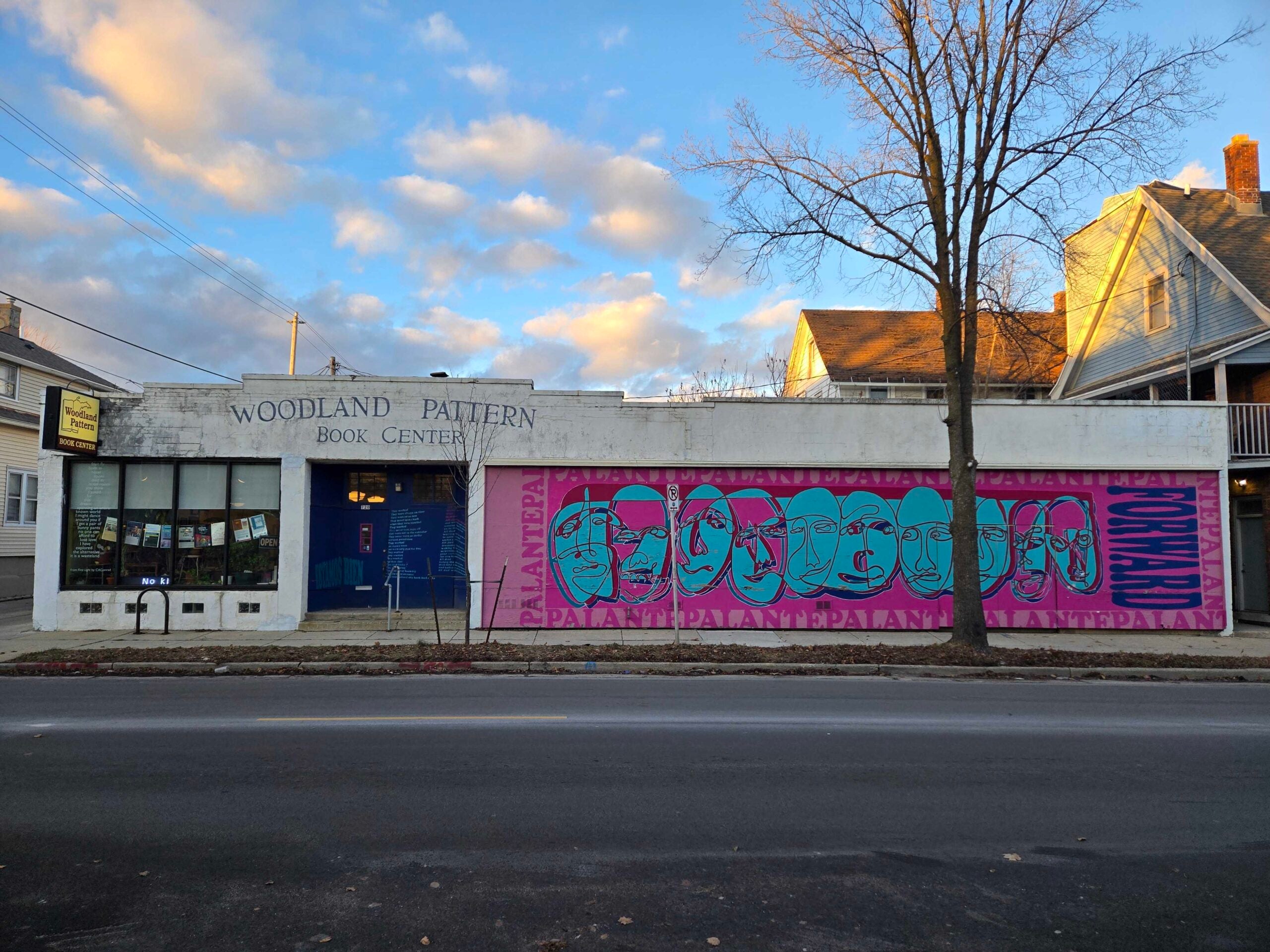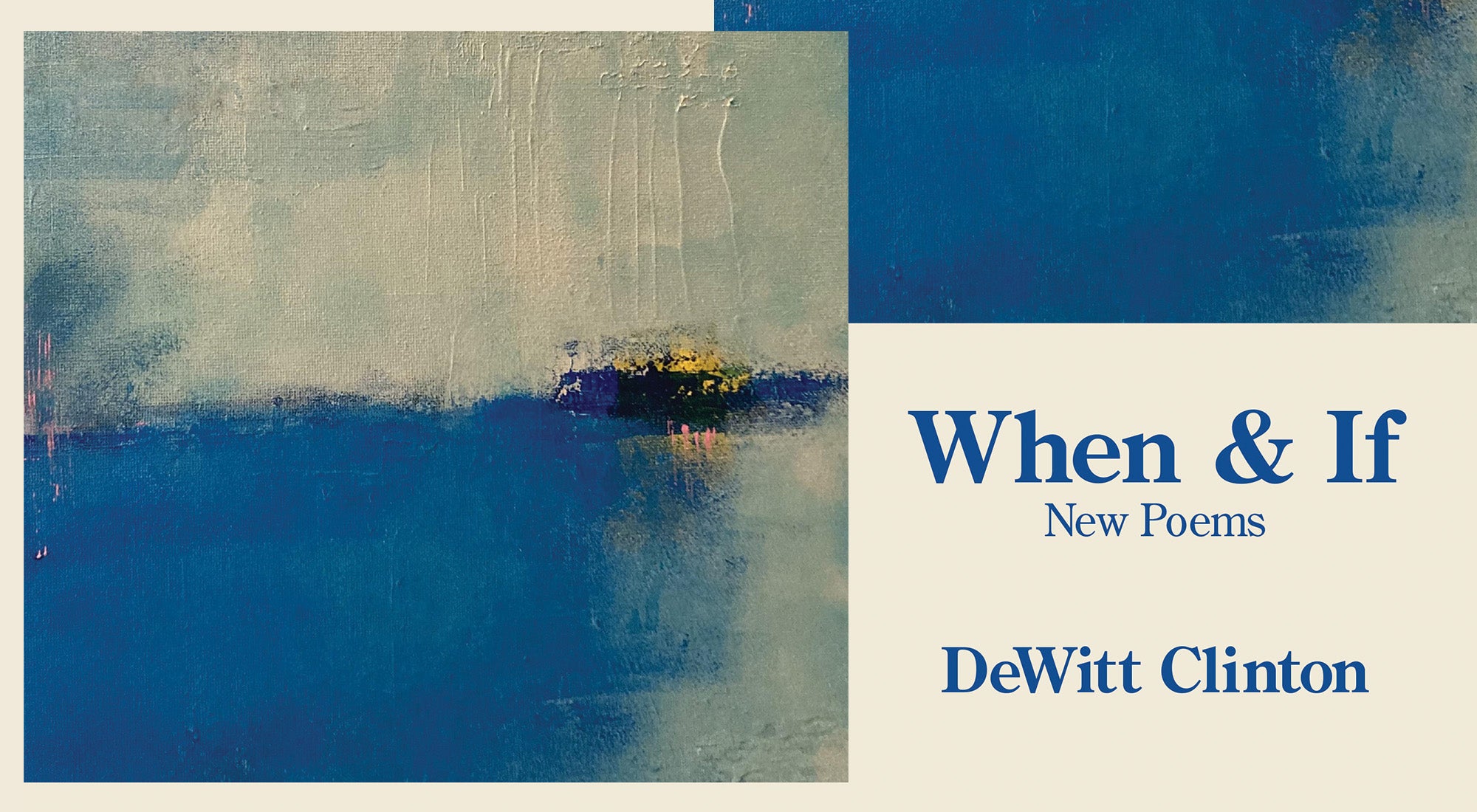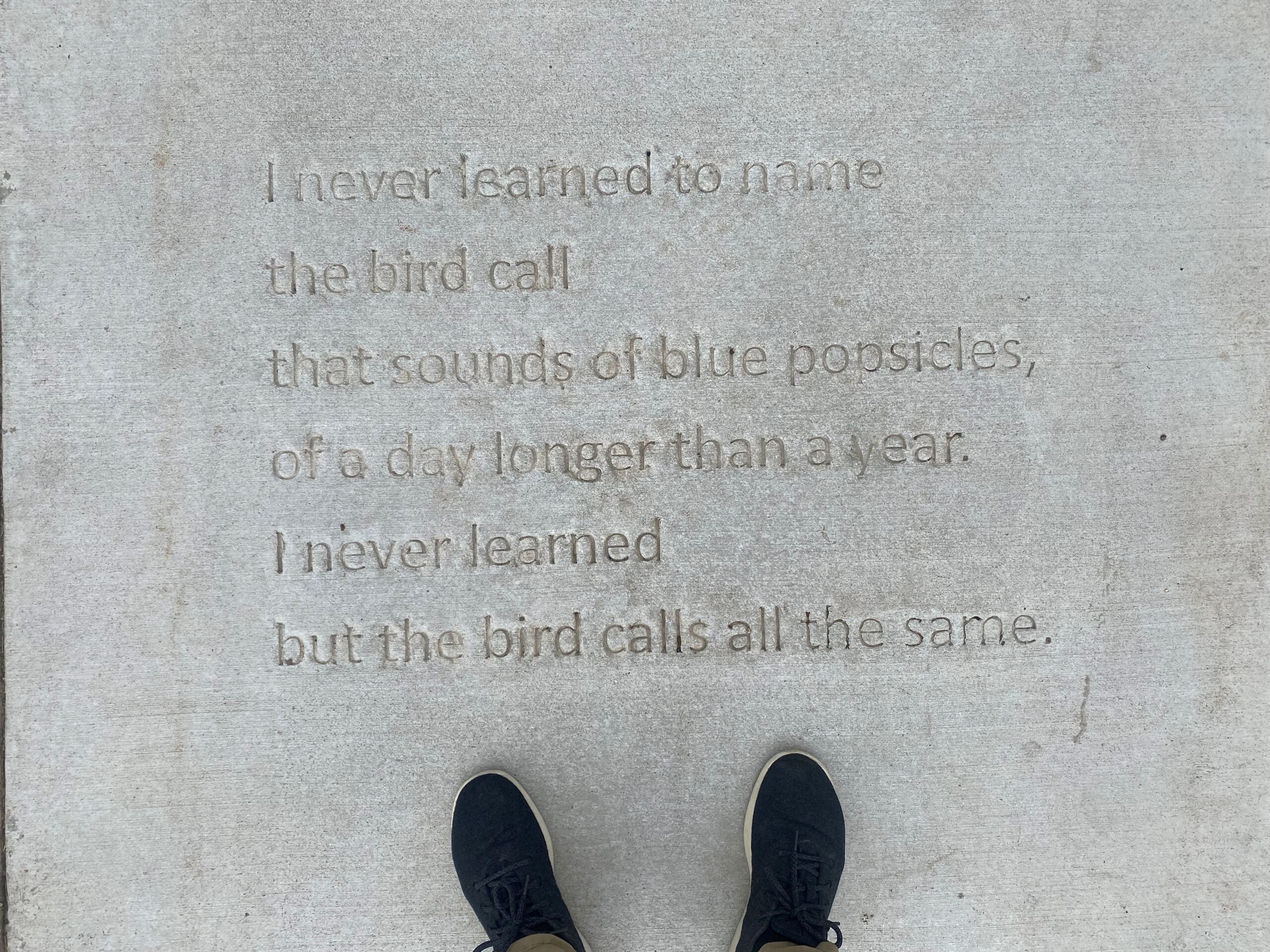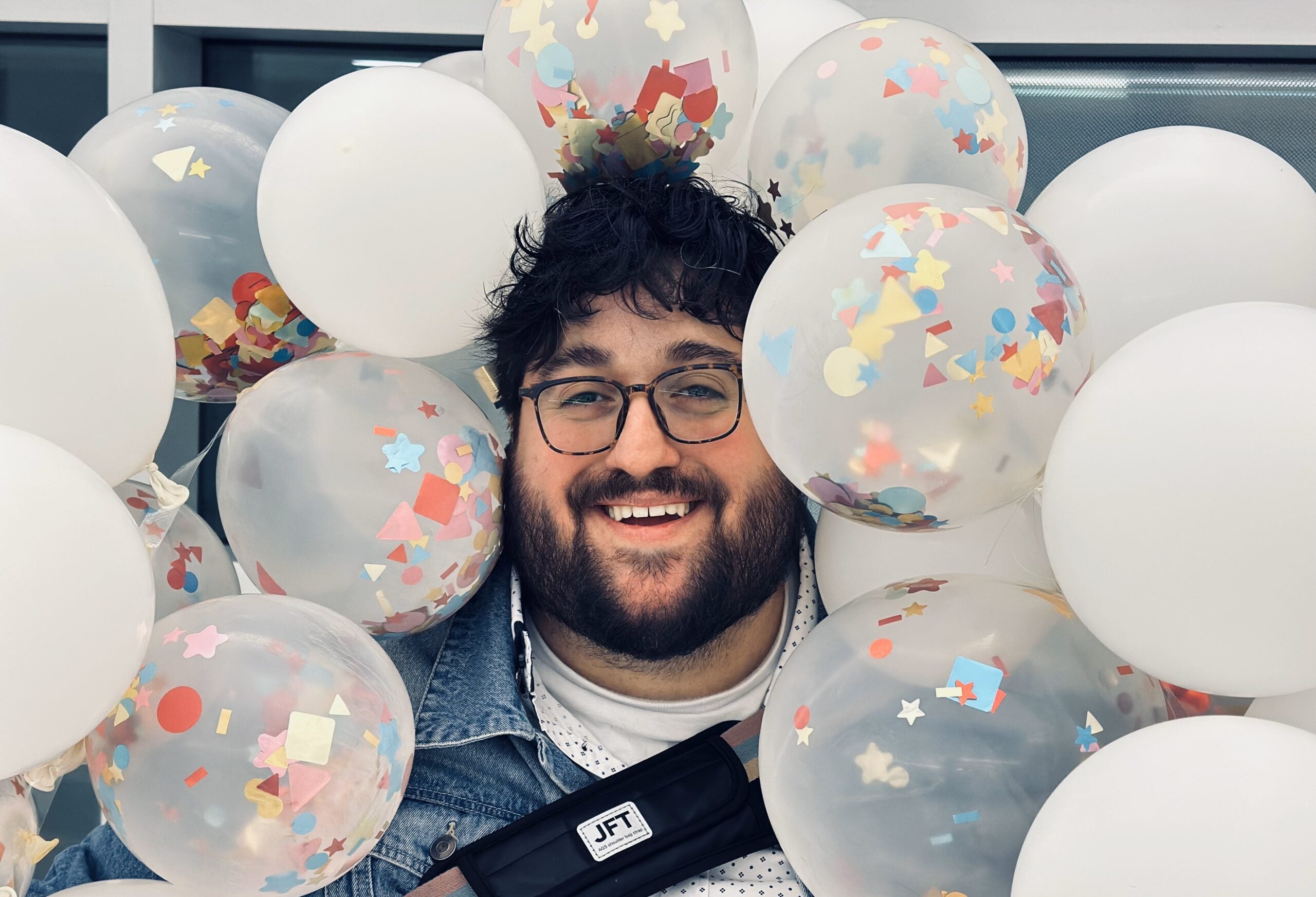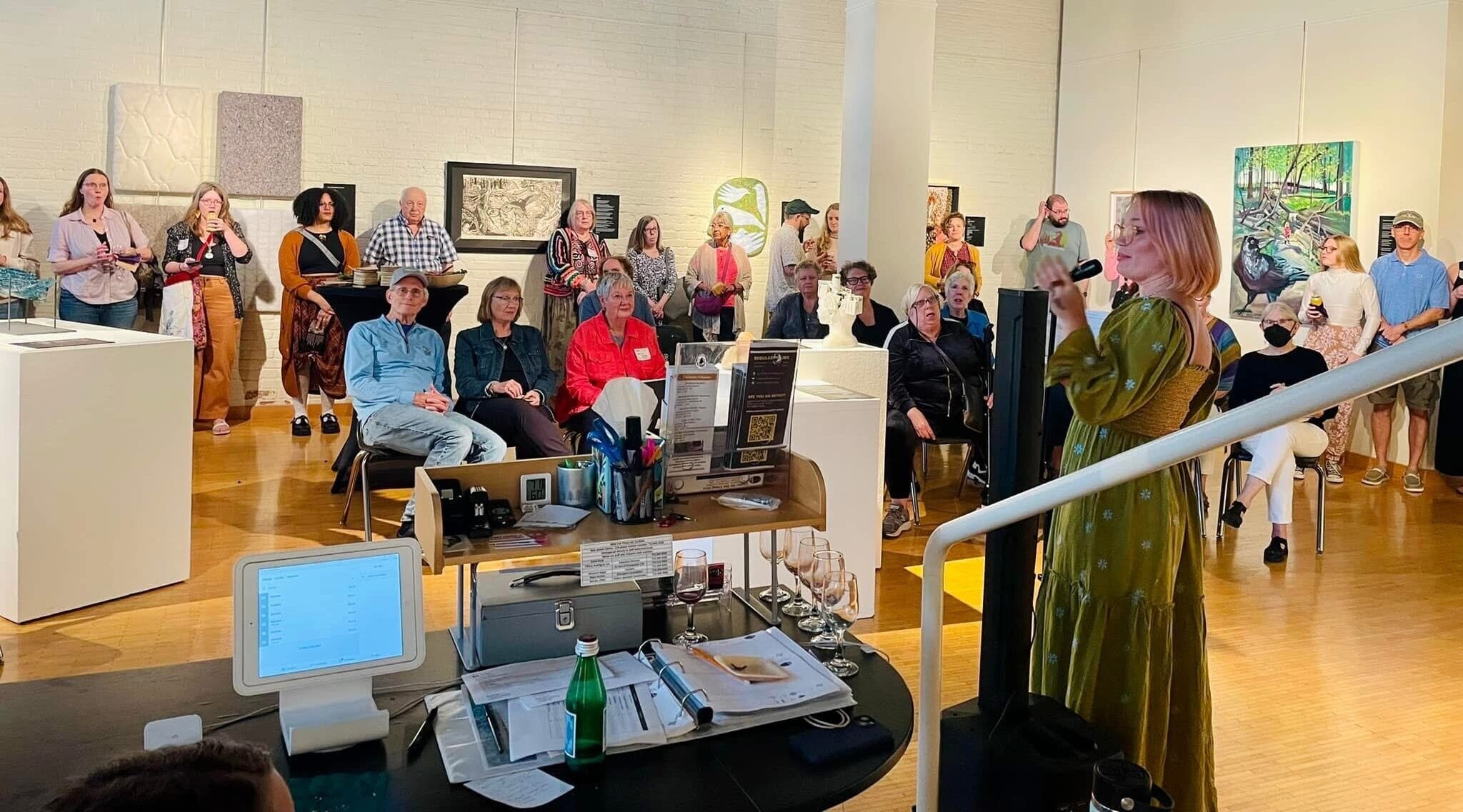Milwaukee’s first youth poet laureate knows how intimidating the blank page feels.
But Emily Igwike says overcoming that fear is how students can launch their endeavors into poetry and creative writing.
“As long as you’re being genuine and as long as you’re approaching it sincerely, it’s going to guide itself and it’s going to be a beautiful poem if you just approach it that way,” Igwike said in an interview with WPR’s “The Morning Show.”
News with a little more humanity
WPR’s “Wisconsin Today” newsletter keeps you connected to the state you love without feeling overwhelmed. No paywall. No agenda. No corporate filter.
Igwike is a senior at the University School of Milwaukee expecting to graduate in June. She is wrapping up the last few months of her one-year term.
Milwaukee County high school sophomores and juniors may apply to be the next youth poet laureate before March 24. Judges will pick finalists by April before the finalists perform at an event in May.
The next youth poet laureate will get a $500 book allowance and a paid summer internship with Woodland Pattern, a nonprofit book center and performance space that helped start Milwaukee’s youth poet laureate program with a previous state poet laureate, Dasha Kelly Hamilton.
On “The Morning Show,” Igwike shared her inspirations and self reflections on poetry, as well as a piece she wrote.
The following was edited for brevity and clarity.
“Your personal emotions and your deepest sentiments about anything in your life are genuine, and they deserve to be honored or commemorated within a poem.”
Emily Igwike
Mackenzie Krumme: How would you advise students who want to get started in poetry?
Emily Igwike: To start writing poetry is to first get over this fear of the blank page and know that poetry doesn’t have to look a certain way or sound a certain way to necessarily be good. Once you approach poetry genuinely and sincerely and just know or use it as a place to put down your deepest thoughts or put down your deepest emotions, it will be able to guide you itself.
The blank page is not intimidating. It’s just a place to start, and any first draft is simply the first draft. No poem comes out perfect when you first write it down.
Your personal emotions and your deepest sentiments about anything in your life are genuine, and they deserve to be honored or commemorated within a poem, or just (be) a place where you have that safe space. Anyone should have access to a safe space in their life, whether it is through writing or a physical space.
Just giving that courage to get over the intimidation of that blank page or blank screen and just start writing is honestly the first way to start.
MK: Why did you apply to this program?
EI: The main thing that attracted me to the program was the opportunity to integrate myself into the greater community of poets and artists in Milwaukee and get that opportunity to meet people in that space and also grow as a poet in that space. But also, the emphasis that this program had on civic leadership and community service.
I was really excited to think that, if chosen to be part of this program, (I would) have an opportunity to connect with other young, talented youth poets in the area or be able to help out with things like the youth programming at Woodland Pattern. Also, I know that Woodland Pattern has a really big emphasis on culture and community around poetry and the arts. So it would be really amazing to be able to connect to different people that they bring in, whether it be different speakers or different events that they’re doing, and also be able to just grow as a poet individually by being in a different space of poetry.
MK: You consider poetry as a way for people to look inward and create a sense of self. What are you discovering about yourself when creating poetry?
EI: With writing poetry, I’ve realized it’s an excellent way to encapsulate the moments that, for me, were very revealing about myself, my character and things I’ve begun to value more as I’ve grown up. For example, I’ve had more opportunities to really enjoy times and spaces of silence in isolation.
Sometimes it seems daunting and overwhelming at first. But looking back on it, these moments of quiet and solitude were excellent ways for me to reflect on where I’ve come and how far I’ve come and progressed, but also where I want to be, where I want to grow and where I want to continue to go.
MK: You often base your poems on memories or events in your life. Can you give us an example of a life event that triggered a poem for you?
EI: One of my favorite memories I’ve ever written a poem about was probably when I was able to share a meal with my mom after getting some type of good news, like a nomination for something. In this memory, we’re just simply sharing one of my favorite Nigerian dishes, which is ofe egusi.
We’re just talking, and we’re just sharing this meal together. In this memory, it was just one of the best ways I could ever characterize my mom’s enduring love for me, and then also this warm, homely conversation that we had over a plate of my favorite food. This memory in particular always reminds me of the power of simply sharing a meal with someone that I love.
‘untitled’ by Emily Igwike
a few months ago, my
youth spilled onto scuffed linoleum floors
and i began tasting citrus.
sweet curiosity rotted too quickly
and my thoughts blossomed, whispering that
time passing is so sour
or maybe
a loosely wrapped gift,
opened once, then discarded
temporary joy trapped between
flimsy calendars
or maybe
just the seconds flowing
out of you, into the sky and
its pinpricks of patient stars—
last night, i remembered their
bursts of radiant light
are simply empty projections
flickering with what used to be
full of life.
READ MORE: State poet laureate Dasha Kelly Hamilton is finally painting the poetry Wisconsin needs
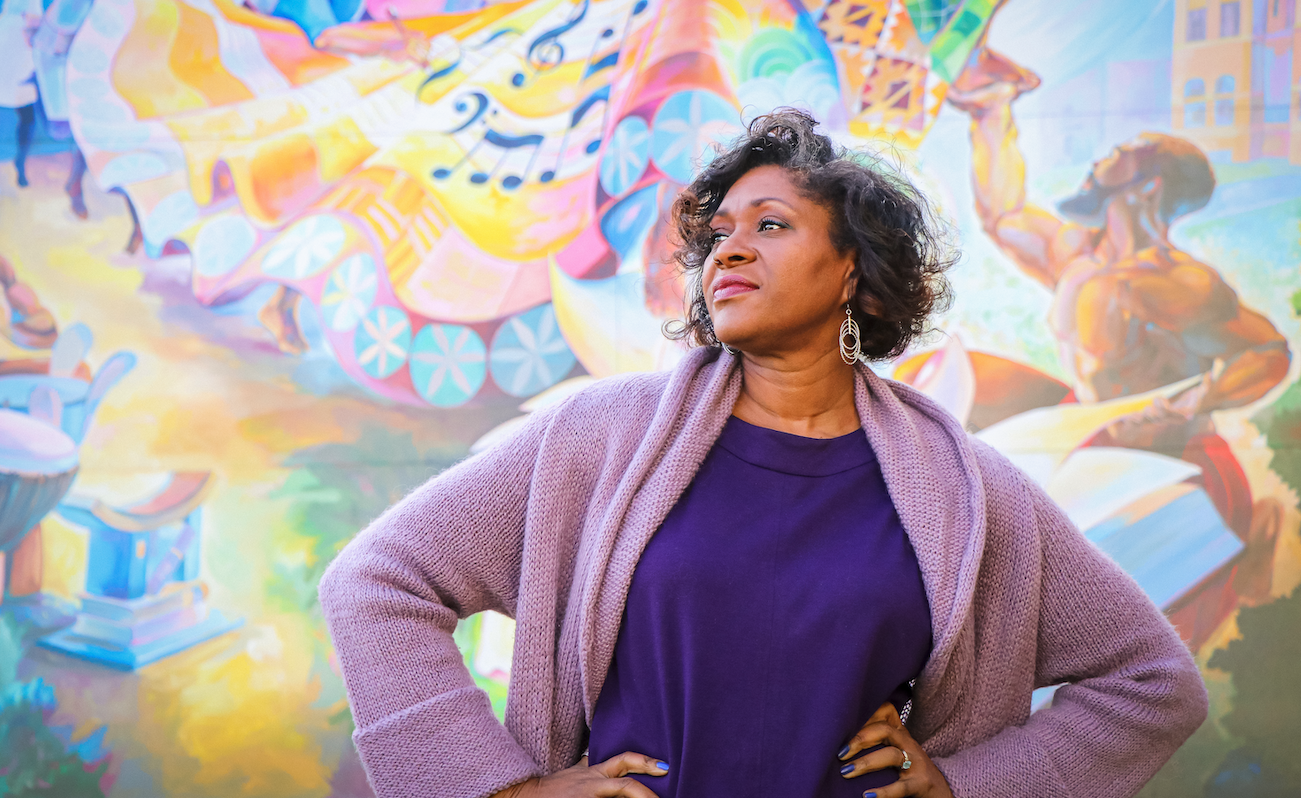
Wisconsin Public Radio, © Copyright 2026, Board of Regents of the University of Wisconsin System and Wisconsin Educational Communications Board.



